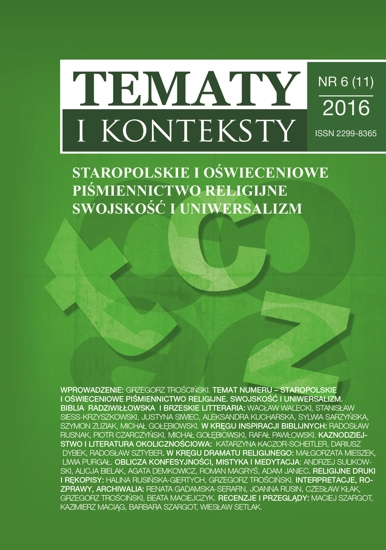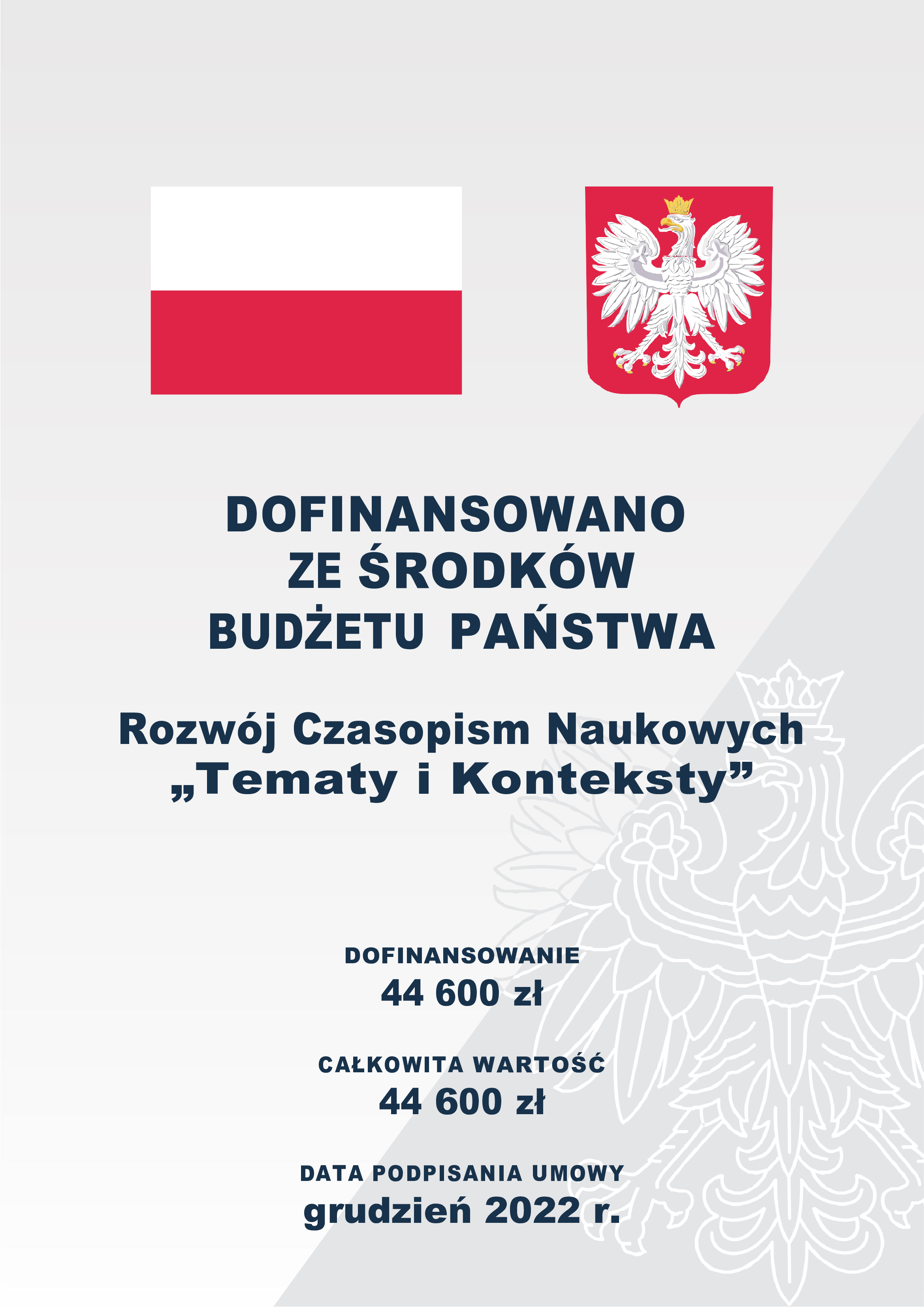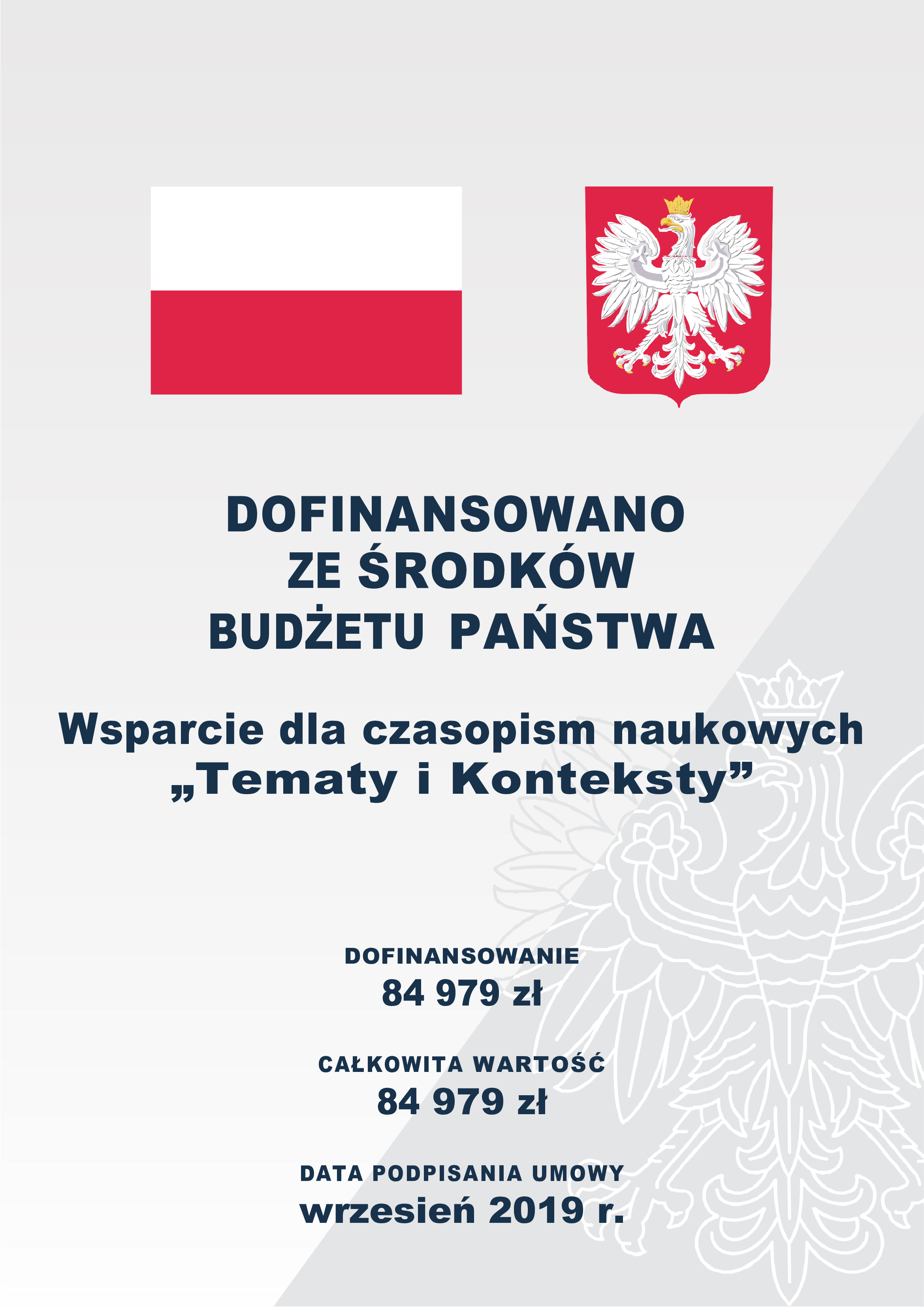Utwory religijne Konstancji Benisławskiej a tradycja mistyki hiszpańskiej (św. Teresa z Ávili, św. Jan od Krzyża)
Słowa kluczowe:
Pieśni sobie śpiewane, Konstancja Benisławska, cykl modlitewny, poezja mistyczna, św. Teresa z Ávili, św. Jan od Krzyża, oświecenieAbstrakt
Konstancja Benisławska was the author of only one collection, entitled Pieśni sobie śpiewane [Songs Sung to Oneself, by Konstancja von Ryck Benisławska, wife of the pantler of the Duchy of Livonia, published with encouragement from friends and taken from rural shadow into daylight in Vilnus in 1776]. It was published in a special period for the Republic of Poland when ideologies from Western Europe became popular in our country. Under the influence of views of French encyclopaedists and Voltaire, efforts for a thorough reform of political, social and cultural institutions began to be made. Transformations were the major talking point in press and literature of those days. Some social circles i.e. representatives of aristocracy, rich nobility and even clergy, started to become interested in the new laic model of spiritual life proposed by Western thinkers. According to philosophers, the Catholic Church proclaimed outdated ideas and stood in the way of development and civilization. Despite the applause for anti-Catholic ideas, the role and teachings of the Catholic Church in the Republic of Poland were not questioned. It contributed to a free development of religious literature. The volume of Benisławska, who was shaped in the spirit of great Spanish mystics, was inspired by love towards God. That feeling mobilizes the poet to continuous search for contact with the Creator, entering into deeper relations. The volume, which is a sort of “poetic prayer book,” is an account of her spiritual experience and feelings.
Downloads
Pobrania
Opublikowane
Jak cytować
Numer
Dział
Licencja
Prawa autorskie (c) 2016 Tematy i Konteksty

Utwór dostępny jest na licencji Creative Commons Uznanie autorstwa – Użycie niekomercyjne – Bez utworów zależnych 4.0 Międzynarodowe.




